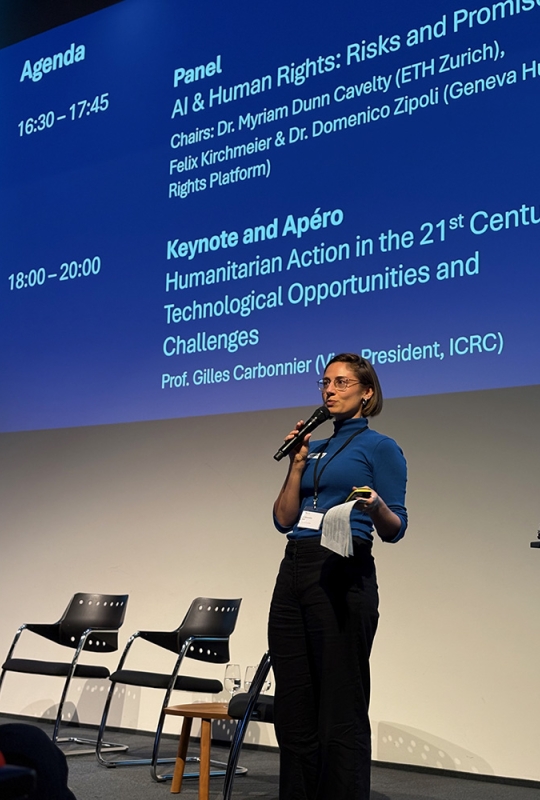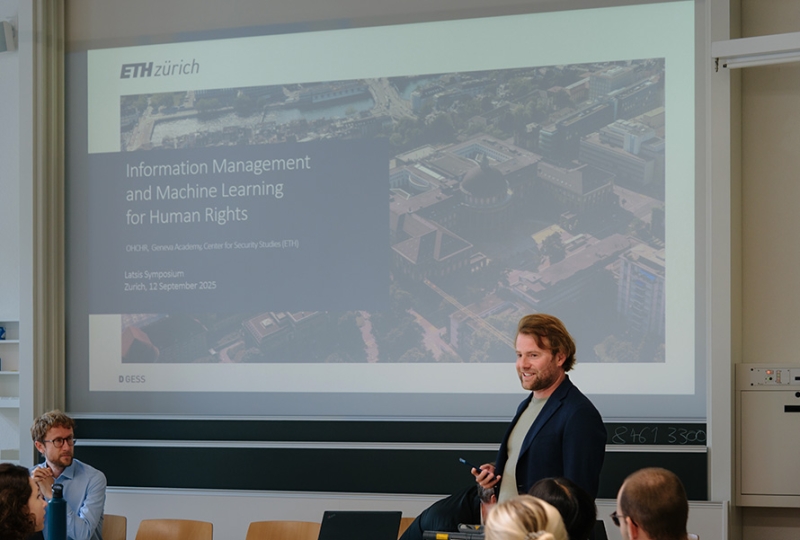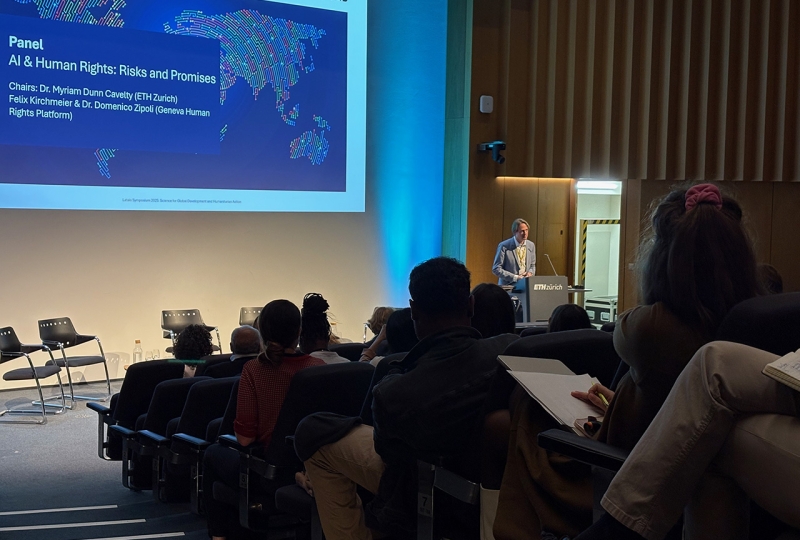On 12 September 2025, an interactive workshop on 'Information Management and Machine Learning for Human Rights' provided a more hands-on perspective. Demonstrations of OHCHR’s Universal Human Rights Index and National Recommendations Tracking Database, alongside HURIDOCS’ open-source tool Uwazi, showed how digital platforms already transform human rights information management. Building on the GHRP’s Digital Human Rights Tracking Tools and Databases (DHRTTD) initiative, the workshop brought together ETH students, UN practitioners, and civil society actors to co-develop ideas on multilingual natural language processing, secure petition handling, and interactive learning tools for rights awareness. Importantly, the workshop also served as a conduit for new collaboration: OHCHR and ETH representatives agreed to pursue joint projects with a link to AI, including through the recently launched UN–ETH Student Team.
‘The effect of AI on human rights depends on the frameworks we design, the ethical limits we set, and the collaborations we foster,’ concluded Domenico Zipoli, Senior Research Fellow and project Coordinator at the GHRP. ‘If we work across disciplines and sectors, we can ensure that AI becomes a force that strengthens — rather than weakens — the protection of human dignity.’
Together, the panel and workshop underscored the importance of bridging disciplines. Human rights experts bring context and values; technologists bring analytical and design skills. Only by combining these strengths can ethical, scalable, and impactful digital tools be developed to strengthen the protection of human dignity.









